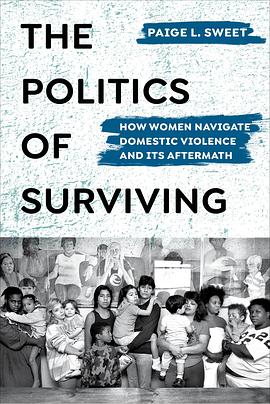The Politics of Surviving
豆瓣
How Women Navigate Domestic Violence and Its Aftermath
Paige Sweet
简介
For women who have experienced domestic violence, proving that you are a "good victim" is no longer enough. Victims must also show that they are recovering, as if domestic violence were a disease: they must transform from "victims" into "survivors." Women’s access to life-saving resources may even hinge on “good” performances of survivorhood. Through archival research, life story interviews, and participant observation, The Politics of Surviving reveals that coerced therapy and trauma discourses play an increasingly central role in women’s lives when they navigate state programs to survive gender-based violence. “Becoming" a survivor is a labor-intensive process that allows some women to become legible to service systems, while it also produces new forms of stratification and social suffering. Using an intersectional lens, Paige L. Sweet uncovers how "resilience" and "survivorhood” can become coercive and exclusionary forces in women’s lives. With nuance and compassion, The Politics of Surviving wrestles with questions about the gendered nature of the welfare state, the unintended consequences of feminist mobilizations for anti-violence programs, and the women who are left behind by the limited forms of citizenship we offer them.
contents
Acknowledgments
List of Acronyms
Introduction: Domestic Violence and the Politics of Trauma
Part I Survivorhood
1. Building a Therapeutic Movement
2. The Trauma Revolution
3. Administering Trauma
Part II Surviving
4. Becoming Legible
5. Gaslighting
6. Surviving Heterosexuality
Conclusion: Traumatic Citizenship
Methodological Appendix
Notes
References
Index